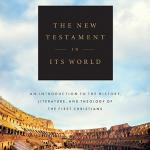Roadmap to Reconciliation: Moving Communities into Unity, Wholeness, and Justice
Downers Grove, IL: InterVarsity, 2015.
Available on Amazon.com
Review by Graham Stanton
“Reconciliation” is a feel-good word. Who wouldn’t want to say yes to restored friendship, to resolving conflict, to reunions and harmony and peace? Yet, the experience of much of our lives suggests that the ideal is more attractive than the reality. Reconciliation is often a good idea that we’d be glad to enjoy, but a difficult task that we’re either uncertain about how to pursue, or unwilling to make the effort to change. Brenda Salter McNeil’s book Roadmap to Reconciliation: Moving communities into unity, wholeness and justice (IVP, 2015) sets out to remedy both problems by providing a set of practical steps, illustrated by a range of lived examples, together with a collection of tools and resources to both inspire and enable the journey.
McNeil defines reconciliation as “an ongoing spiritual process involving forgiveness, repentance and justice that restores broken relationships and systems to reflect God’s original intention for all creation to flourish” (p.22). The definition is at pains to acknowledge the need to heal historical wounds, and to acknowledge the need to address systemic injustice not just individual change.
Grounded in theology and social science, McNeil’s approach comes out of her own years of experience of working for reconciliation among church communities. While the primary focus of the book is racial reconciliation in the United States, the roadmap applies to all manner of broken relationships whether in families or between friends, or conflicts between generations or social classes.
The central metaphor for reconciliation is that of a road trip, complete with key landmarks and distinctive phases. The roadmap has five main movements: catalytic events, realisation (where we come to understand a new reality), identification (where we recognise that ‘your people become my people’), preparation (where we get ready for lasting change), and activation (where we actively work for reconciliation).
Like all good road trips, the journey is not linear, but one that winds and turns, and where the option to turn around is ever-present. Where will we find the power to stay the course? McNeil points both to the practical challenge of trusting the process, developing the skills that keep us moving forward on the journey, and also to the power and hope of God. “God intervenes in the process to bestow us with the strength we need to stay the course. The Holy Spirit guides us, nourishes us and pushes us forward” (p.114).
This isn’t a book to be read on your own. The work of reconciliation belongs to a whole community and each chapter concludes with discussion questions and practical actions for a community to pursue together.
More than just a good idea, reconciliation is our calling. God who has made one new humanity in Christ calls us to keep the unity of the Spirit through the bond of peace (Eph 2:15, 4:3). McNeil offers us a practical way forward. This book removes much of the uncertainty about what to do, leaving us with the challenge to our willingness to pursue it.
Dr. Graham Stanton, Lecturer in Practical Theology and Dean for the Center of Children’s and Youth Ministry.













